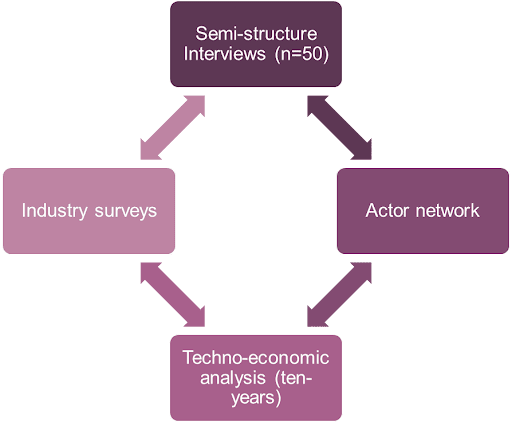
To exchange expertise and better understand the strengths and weaknesses of local decarbonization plans in the UK, which can be applicable to the EU’s localised decarbonization plans, on April 23, 2024, CMCC team from LOCALISED consortium hosted a talk by Dr. Kyle Herman from the University of Sussex (UoS) titled “Shoreham Port’s Decarbonisation Plan: Orchestrating Complexity for Mission-Driven Innovation and Technological Integration”.
According to the official estimates, industrial regions and clusters in the UK are important for the economy, employing 1.5 million people across steel, oil refining, chemical, and other energy-intensive industries, and worth £320 billion in goods and services. Yet, they are a major source for the UK’s greenhouse gas emissions (GHGs), cumulatively generating nearly 32 metric tons of carbon dioxide equivalent annually.
To revive declining industries, and to meet GHG reductions by 2050, the UK has earmarked substantial public funds—worth billions of pounds in the coming years—to drive industrial decarbonisation across its regional clusters. Following on from the much larger cluster decarbonisation competition—the industrial decarbonisation challenge—the UKRI recently awarded £6 million in funding to ten local industrial decarbonisation clusters (LIDPs), two of which are Ports (Port of Poole and Shoreham Port).
This research explores Shoreham Trust Port, outside of Brighton & Hove in the South of the UK. Researchers from UoS ground their study in the innovation ecosystems approach, given the plurality of actors and technologies involved. They then apply orchestration in multi-stakeholder networks theory to examine Shoreham Port’s industrial decarbonization mission as it undergoes collective and collaborative planning, experimentation, and production of its 2035 net-zero goals embedded in its decarbonisation plan.
They use a multi-modal approach consisting of fifty semi-structured interviews, one survey for each industrial partner, a separate survey for local tenants, and a techno economic assessment of energy, emissions, costs.
The data will then undergo several different transformations:
- Interview data will be cleaned and summarised using natural language processing (NLP); a link/edge analysis will be conducted for actor network;
- The surveys will feed into the techno economic analysis, providing assessment of current and future costs, investments, and opportunities for the LIDP.
The results of this research will shed light on:
- The immediate and medium-term net-zero investment opportunities;
- How this project can leverage the findings to quickly drive net-zero in Shoreham Port;
- How orchestration and orchestrators have managed the emerging complex system for industrial decarbonisation in Shoreham Port.

Recent Comments